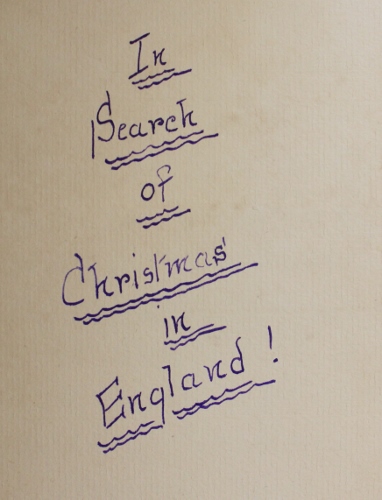In 1935 an anonymous author penned a journey through Dorset and Hampshire, a journey undertaken between the 23rd and 28th December 1935. We have transcribed this account and we will be publishing an extract each day during this period, 85 years later. Part one of this journey will be published later this morning, and then at 10am each day over the course of the next week.
We hope you enjoy this festive jaunt through the places of Dorset and Hampshire, and from all of us at Dorset History Centre, we hope you are able to have a wonderful Christmas!

—


I’m sure other sleuths have been trying to deduce who this couple were but I would like to venture that they were Doris Perry, nee Bateman (1890-1971) and her husband Arthur Vivian Perry (1891-1969). This is based on the reference to Logan Studios in the first diary entry which is in Kensington, Arthur & Doris are the only couple listed there in the 1936 electoral register. Also the reference to Rushden in Hertfordshire which is where both Arthur and Doris died.
I of course may be wrong but it would be interesting to know if this makes sense in relation to the diaries origins.
Some additional circumstantial evidence: the suspected author Doris Perry (“Mouse”?), refers in the diary to the “Cheshire lanes” of her youth (26 December extract). My research reveals that she was born in Stockport, Cheshire! I hope that this might help in confirming the authorship of this diary?
I’ve nothing better to offer to John Hersey’s astute research but they were an obviously well-to-do couple, the diminutive but playful ‘mouse’ and the obviously rotund ‘jumbo’, who could afford a reliable car and the money to travel at random in an age when only the better-off middle class could afford such things. But one thing the diaries very plainly show is that not all was better in England in the so-called ‘good old days’ – and certainly not the hospitality industry. I remember it being still like that in the 1960s!